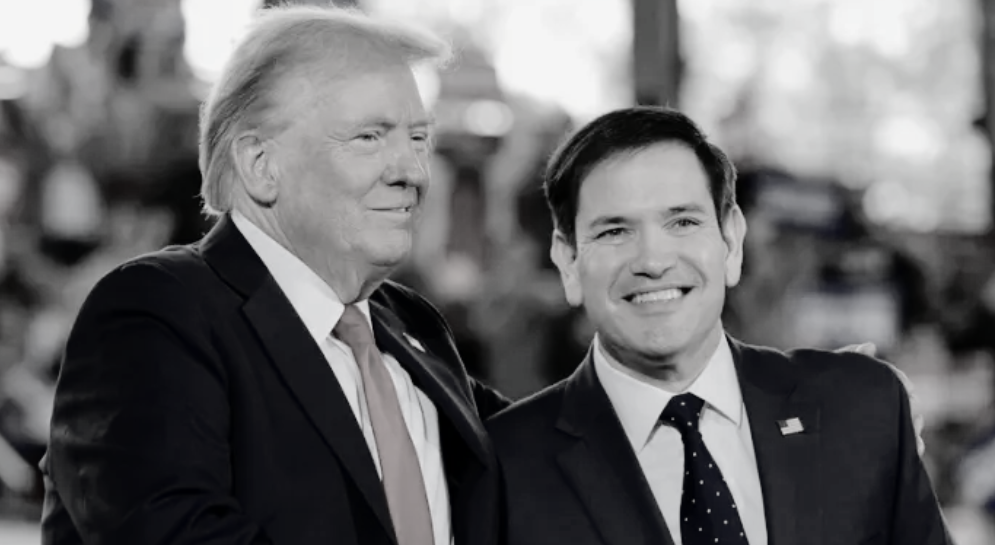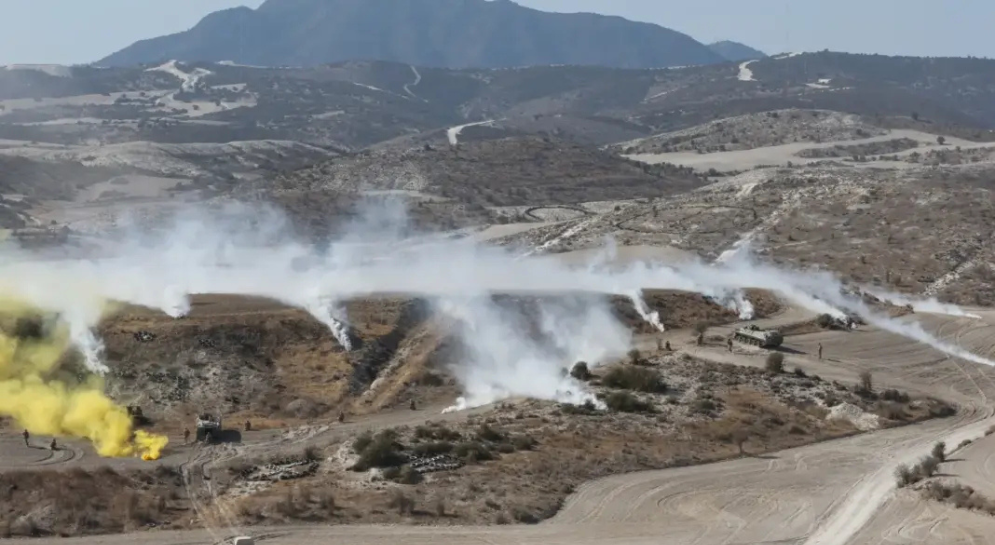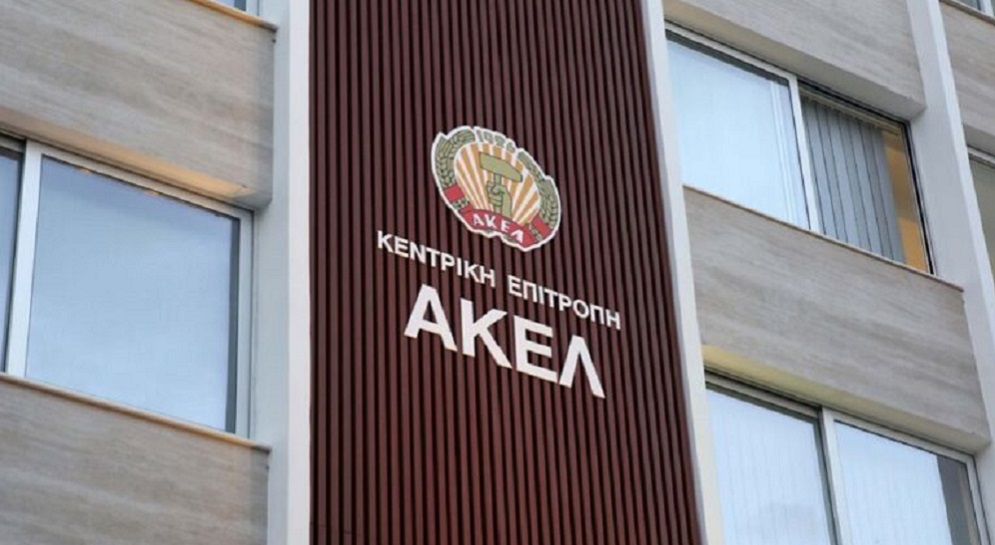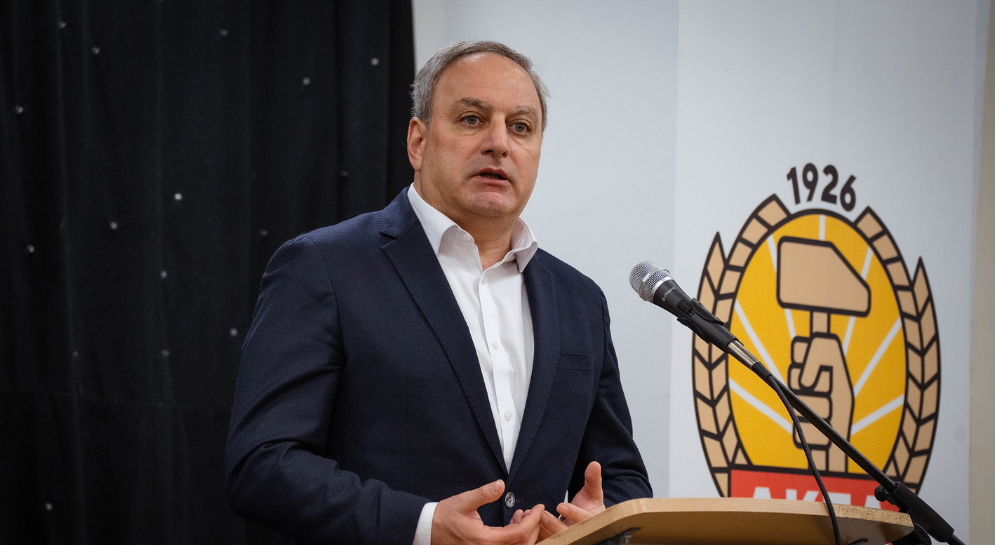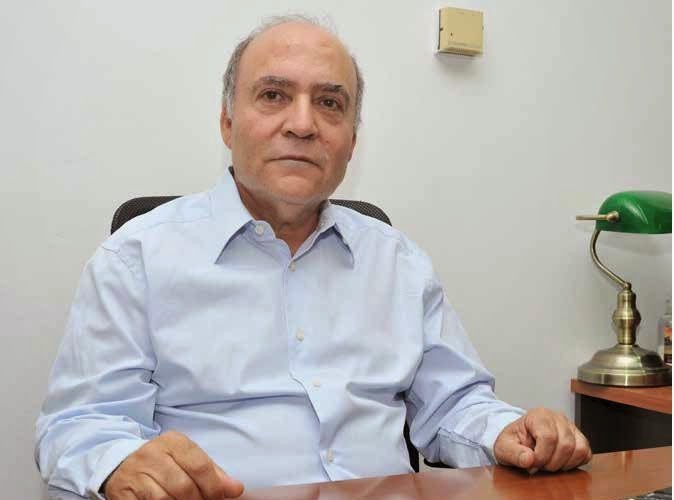
Interview with Toumazos Tsielepi, member of the Political Bureau of AKEL, Head of the Cyprus Problem Bureau of AKEL and International law expert on “Astra” radio station
Friday 30 September 2022
ASTRA: Greek-Turkish relations are on a tightrope, a phrase that has become a “cliché”. Are we really talking in this case about a tense situation, Mr. Tsielepi?
TT: Yes, it is undeniably a tense situation because Turkey has escalated its threats to a great extent. I don’t personally recall Turkey issuing so many severe threats in the past and with such frequency. This creates a difficult climate and a tense situation. It is well-known that when such situations arise even accidents can frequently happen – even when there isn’t any real intention. That is to say, someone may proceed to a tense incident and in the end developments may get out of control. Of course this situation is difficult, it is indeed tense.
ASTRA: Yesterday we interviewed the former negotiator of the Turkish Cypriot side, Mr. Nami. Among other things, I asked him about this whole situation that is developing. He said that, yes, the situation was worrying, but he put it down to the upcoming elections in Turkey and said that, among other things, as in many other countries around the world, extreme right-wing tendencies are increasing in Turkey too, which has resulted in this extremist rhetoric on the part of the Turkish President, as well as his attempt to rally his people and so on.
TT: When we talk about Turkey we cannot proceed to make absolute positions and arrive at safe predictions. However, making an objective analysis I would agree with Mr. Nami that this scenario is indeed there – since Turkey keeps bringing it up – but it is not the most probable, it is somewhat remote. In other words, the danger of a hot episode breaking out and I would like to explain why.
First of all, if we look at it from the point of view of the election campaign in Turkey, we can without difficulty see that this is not the case. The Turkish people are not moved by this kind of rhetoric and the reason is very simple…In Turkey there is a major economic problem, there is a deep ongoing economic crisis and it is clear that the Turkish people’s concern is how to survive and make ends meet. And this is being done by a large section of the media that does not give so much emphasis and importance to this kind of rhetoric. Consequently, it is doubtful how much Erdogan could benefit electorally from such a development, namely from a crisis or a hot episode.
From there onwards, of course, it is clear that at a time when the war between Russia and Ukraine is raging, with the whole world in effect suffering enormous consequences not only for Russia itself, which is subject to sanctions, but also of course for Ukraine too, which is facing an invasion, but also with consequences for all the peoples of Europe and, I would say, for the entire world.
So at a time like this is the time suitable [for Turkey] to proceed and wage an attack? I think it will be very difficult for it to do so. Turkey will not receive support from anyone.
We know very well in Cyprus in particular that when the US and NATO are talking about principles – and I don’t know what else – they apply them selectively as in the case of Russia because an invasion did indeed take place, but the US and NATO don’t apply these principles everywhere because it is a matter of serving interests. Will the US and NATO come and confirm in the most categorical way that that is precisely what they are doing? This is therefore not the suitable time for Turkey.
For all these reasons, this scenario does exist and it is there, because Turkey is issuing threats every day, but we should not think that tomorrow morning Turkey will start a war…
ASTRA: This is quite clear. I was reading yesterday Mr. Tsielepi since you mentioned it, a representative of the US State Department was asked about the F-16 fighter planes to Greece, US relations with Turkey and in which interest the US will move, towards Greek or towards Turkish interests. And this Spokesperson replied that the only interest that motivates them is the national interest of the US. So it’s very clear that the US will work to promote and serve their interests…
TT: We didn’t expect him to say anything different since we knew that, but I credit what he said as an honest statement…
ASTRA: Yesterday after the National Security Council of Turkey met, an increase in the number of Turkish occupation troops in northern occupied Cyprus was announced and this is in response – so Turkey says – to the lifting of the US arms embargo. Now, an increase in occupation troops – that sounds worrying.
TT: It is without any doubt worrying and it is precisely for this reason that regardless of Turkey’s threats, regardless of our assessment of whether or not Turkey will in fact carry out these threats, for us the only way to effectively defend ourselves is, as you understand, through the diplomatic and political means. It is through the path of the United Nations. It is the path of talks. That is exactly where we should turn our attention and focus on. That’s where we must insist on.
I recall that for as long as the talks were ongoing up to the Crans Montana conference on Cyprus, Turkey did not issue any such threats, but neither was it talking about a two state solution. It only did so after the talks had collapsed. Our aim is to resume the negotiating procedure. This is the most effective way to address Turkey. That is precisely where Turkey is vulnerable and not in the military field.
We reiterate that this will not happen – at least not before the presidential elections in Cyprus and Turkey. And even after the upcoming presidential elections [in Cyprus] I will say very clearly that it depends on who is elected President of the Republic. If someone from the spectrum of the ruling DISY party is elected, that is to say from the two DISY candidates A. Neophytou and N. Christodoulides, they will continue implementing the same policies that have led us to exactly the same dead ends that we all see in front of us. We also see the tragic consequences and results of these policies… So, for us this is the only way forward.
ASTRA: On the one hand there is Varosha, on the other hand there are the fait accompli, the Turkish actions in the Exclusive Economic Zone [of the Republic of Cyprus]. We also had the recent negative development with ruling of the Titina Loizidou case at the Council of Europe.
JT: Exactly. I recall what certain people were saying that Turkey supposedly doesn’t have drills to drill, that Turkey is supposedly bluffing in Varosha, that certain forces and circles were counting on the European Union to impose sanctions on Turkey, which of course never happened because Russia is one thing, Turkey is another, and so on.
Consequently, I repeat, what needs to be done is to return to the correct policies so that the negotiations for a federal solution that will liberate and reunite our country and people can be resumed. The immediate period ahead of us, I repeat, is extremely crucial.
ASTRA: UN Secretary-General’s Special Representative Colin Stewart was not very optimistic yesterday [in his statements] about the future of the talks, as well as with regards the solution of the Cyprus problem. This as a result raises further concerns…
TT: His statements were not only not very optimistic, he was very pessimistic. Furthermore, he even expressed himself in a language that is difficult for a UN Special Representative to express. In any case, what he said reflects a real situation. It reflects exactly where we have been led towards, with the result that at this very moment Turkey is, on top of everything else, seeking a two state solution and no one [from the international community] is denouncing it.
ASTRA: On the Ukrainian crisis, Mr. Tsielepi. The Kremlin has announced the annexation of the Ukrainian regions where so-called referendums were held. It is a development that creates new realities. The UN Secretary General has made it clear that the United Nations will not accept such fait accompli. However, it does create new facts on the geopolitical and military chessboard…
TT: It is unquestionably an undesirable and dangerous development. You understand that problems cannot be solved in this way. What must have been done on the Ukrainian issue was of course to ensure the withdrawal of the Russian troops from Ukraine, to restore the territorial integrity and sovereignty of Ukraine, but at the same time that exploratory talks should once again have begun on the basis of the Minsk Agreements.
Instead, what we see happening in Ukraine is a theatre of war between Russia and NATO on Ukrainian territory, with the result that the whole situation is deteriorating every day, and no one knows what the repercussions of this situation might be.
As far as the annexation of these territories is concerned it is obviously an illegal action. I don’t need to tell you this to make it clear. What should have been done was that the Minsk Agreements should have been implemented which were anything but being implemented by the Ukrainian regime and the rights of the Russian-speaking people and their autonomy in Ukraine should have been respected.
ASTRA: Is it true that the Ukrainian issue started not 6-8 months ago but when the framework was set with the Minsk Agreements and they were subsequently not implemented in practice – without Russia being legitimized to carry out an invasion?
JT: Not at all…Nothing can justify the Russian invasion. We are quite clear on this issue. However from there onwards, we cannot close our eyes to a logic that argues that anyone who says anything about what preceded it [the Russian invasion] means that they support the Russian invasion.
It reminds us of the Cyprus problem because we say that in our case, of course, a Turkish invasion did take place, that there is an ongoing occupation, that there is no justification for it and that the territorial integrity of the Republic of Cyprus must be restored. However, at the same time we do not hesitate to declare that there were certain events that preceded the Turkish invasion, culminating in the execution of a coup d’état. Precisely the same thing happened in Ukraine. The paradox is that anyone who recalls all these facts is immediately considered to be on the side of the invader and so on and is demonized.

